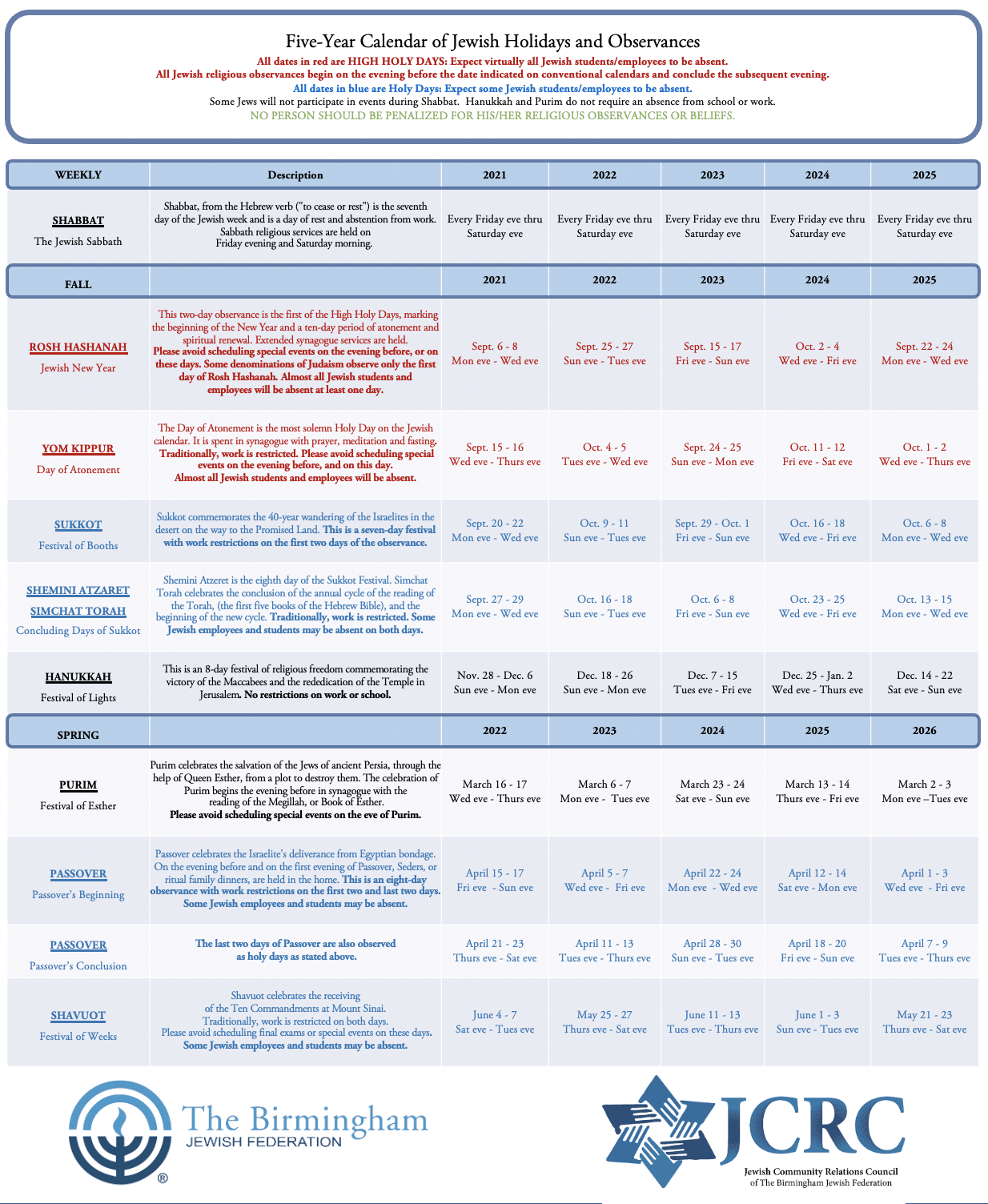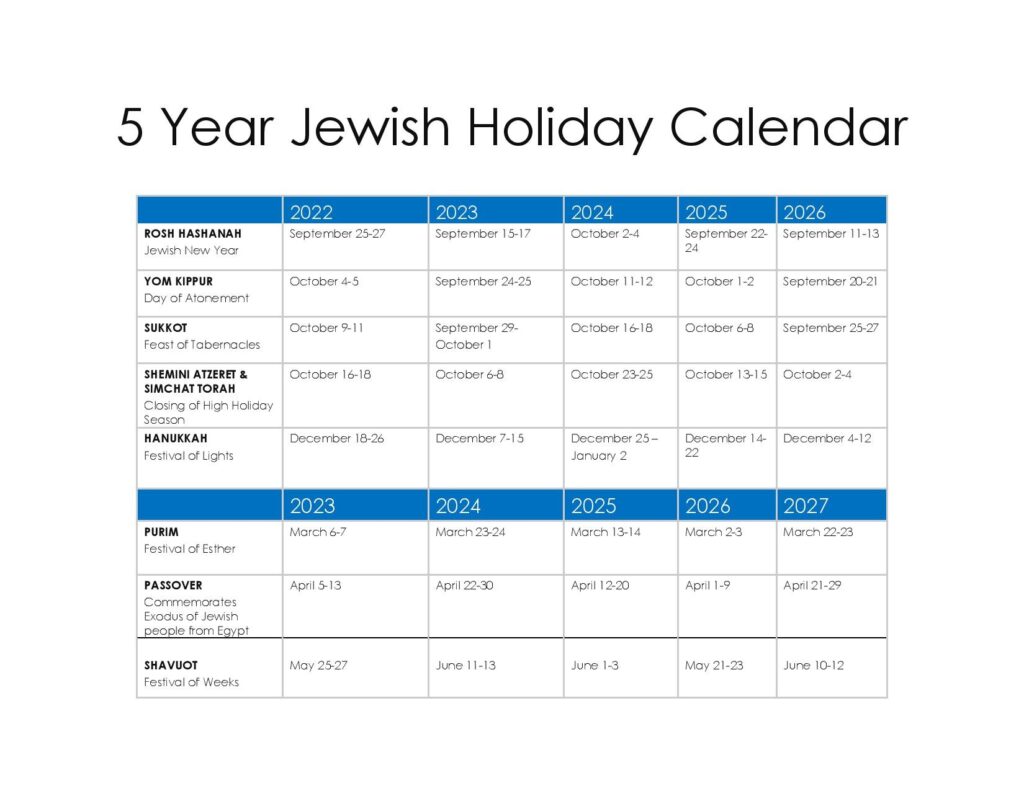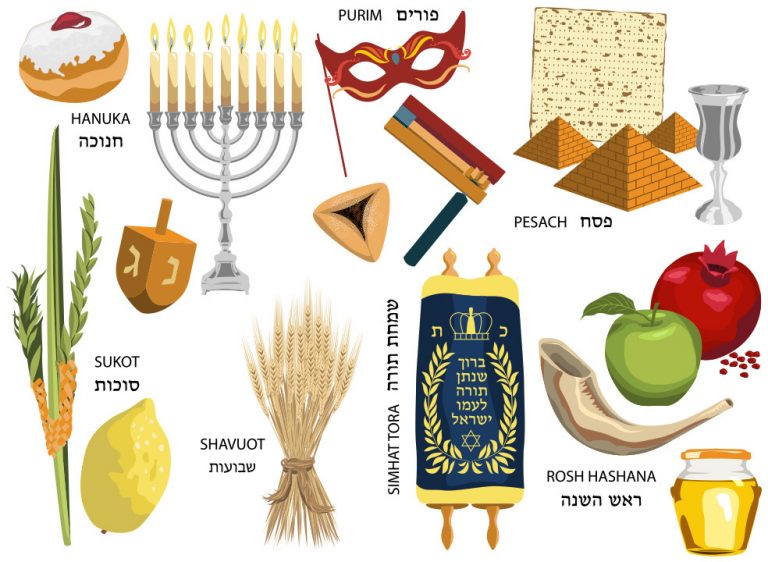Jewish Holidays In Australia: 2025 Observances And Significance
Jewish Holidays in Australia: 2025 Observances and Significance
Related Articles: Jewish Holidays in Australia: 2025 Observances and Significance
Introduction
With enthusiasm, let’s navigate through the intriguing topic related to Jewish Holidays in Australia: 2025 Observances and Significance. Let’s weave interesting information and offer fresh perspectives to the readers.
Table of Content
Jewish Holidays in Australia: 2025 Observances and Significance

The Jewish calendar, a lunisolar system, dictates the dates of Jewish holidays, leading to variations in their observance from year to year. This article provides a comprehensive overview of the major Jewish holidays in Australia for 2025, outlining their dates, significance, and traditions.
Rosh Hashanah: The Jewish New Year
- Date: September 15-17, 2025 (Australia)
- Significance: Rosh Hashanah marks the beginning of the High Holy Days, a period of introspection and repentance. It is a time to reflect on the past year, seek forgiveness, and make resolutions for the year ahead.
- Traditions: Rosh Hashanah is celebrated with special prayers, the blowing of the shofar (ram’s horn), festive meals, and the eating of symbolic foods like apples dipped in honey, symbolizing a sweet new year.
Yom Kippur: The Day of Atonement
- Date: September 24-25, 2025 (Australia)
- Significance: Yom Kippur is the holiest day in Judaism, a day of fasting and intense prayer. It is a time for serious reflection, seeking forgiveness for sins, and making amends with others.
- Traditions: Yom Kippur is observed with a 25-hour fast, special prayers, and synagogue services. The day culminates with the Neilah service, a solemn prayer that marks the closing of the gates of heaven.
Sukkot: The Feast of Tabernacles
- Date: October 2-9, 2025 (Australia)
- Significance: Sukkot celebrates the Israelites’ wandering in the desert after their exodus from Egypt. It commemorates God’s protection and provision during their journey.
- Traditions: Sukkot is celebrated by constructing a sukkah (temporary hut) and eating meals within it. The sukkah symbolizes the fragility of life and the importance of finding shelter and support. Other traditions include waving the lulav (bundle of palm, myrtle, and willow branches) and etrog (citron fruit), and reciting the Hallel (psalms of praise).
Simchat Torah: Rejoicing in the Torah
- Date: October 9-10, 2025 (Australia)
- Significance: Simchat Torah marks the conclusion of the annual cycle of Torah readings and the beginning of a new cycle. It is a joyous celebration of the Torah and its teachings.
- Traditions: Simchat Torah is celebrated with dancing, singing, and the reading of the Torah. Children are often given the honor of carrying the Torah scrolls in parades around the synagogue.
Hanukkah: The Festival of Lights
- Date: December 12-20, 2025 (Australia)
- Significance: Hanukkah commemorates the rededication of the Second Temple in Jerusalem by the Maccabees after their victory over the Seleucid Greeks. It celebrates the miracle of the oil that miraculously burned for eight days, despite only being enough for one day.
- Traditions: Hanukkah is celebrated by lighting the menorah (candelabrum), playing dreidel (a spinning top game), eating latkes (potato pancakes) and sufganiyot (jelly doughnuts), and giving gifts.
Purim: The Festival of Lots
- Date: March 1-2, 2025 (Australia)
- Significance: Purim commemorates the deliverance of the Jewish people from Haman’s plot to exterminate them, as recounted in the Book of Esther. It is a time for joy, celebration, and giving charity.
- Traditions: Purim is celebrated with costume parties, reading the Megillah (Scroll of Esther), sending gifts of food to friends and neighbors, and giving charity to the poor.
Passover: The Festival of Freedom
- Date: April 10-18, 2025 (Australia)
- Significance: Passover commemorates the exodus of the Israelites from Egypt, their liberation from slavery, and the signing of the covenant between God and the Jewish people.
- Traditions: Passover is celebrated with a Seder (ritual meal) where the story of the exodus is recounted, special foods like matzah (unleavened bread) are eaten, and symbolic rituals are performed.
Shavuot: The Festival of Weeks
- Date: June 1-2, 2025 (Australia)
- Significance: Shavuot commemorates the giving of the Torah to the Israelites at Mount Sinai. It is a time for study, reflection, and spiritual renewal.
- Traditions: Shavuot is celebrated with special prayers, all-night Torah study, and the eating of dairy foods, representing the milk and honey promised to the Israelites in the Land of Israel.
Beyond Dates: Understanding the Importance
These holidays are more than just dates on a calendar; they are living expressions of Jewish faith and tradition. They offer opportunities for reflection, celebration, and connection to the Jewish community and heritage. They remind us of the historical struggles and triumphs of the Jewish people, and they inspire us to continue building a better future.
FAQs: Jewish Holidays in Australia
Q: How are Jewish holidays observed in Australia?
A: Jewish holidays are observed in Australia in a similar manner to other parts of the world, with synagogues holding special services and families celebrating with traditional meals and activities. However, Australia’s diverse climate and multicultural environment may lead to unique variations in customs and celebrations.
Q: Are there any unique traditions associated with Jewish holidays in Australia?
A: While core traditions remain consistent, Australian Jewish communities often incorporate local elements into their celebrations. This might include using local ingredients in traditional foods, incorporating Australian music or art into celebrations, or holding outdoor events that take advantage of the Australian climate.
Q: How can I learn more about Jewish holidays?
A: There are numerous resources available for learning about Jewish holidays, including synagogues, Jewish community centers, online resources, and books.
Tips for Engaging with Jewish Holidays in Australia
- Attend synagogue services: Participating in synagogue services is a powerful way to connect with the spiritual significance of the holidays.
- Learn about the traditions: Research the history and traditions associated with each holiday to deepen your understanding and appreciation.
- Engage with the community: Participate in community events, festivals, and celebrations to connect with other Jews and experience the holiday in a shared setting.
- Share the experience: Share your knowledge and experiences with others, helping to foster understanding and appreciation for Jewish holidays.
Conclusion
The Jewish holidays in Australia, like their counterparts globally, offer a rich tapestry of tradition, spirituality, and cultural expression. They provide opportunities for personal growth, community building, and a deeper connection to Jewish history and identity. By understanding the dates, significance, and traditions of these holidays, we can gain a richer appreciation for the vibrant and diverse nature of Jewish life in Australia.








Closure
Thus, we hope this article has provided valuable insights into Jewish Holidays in Australia: 2025 Observances and Significance. We hope you find this article informative and beneficial. See you in our next article!